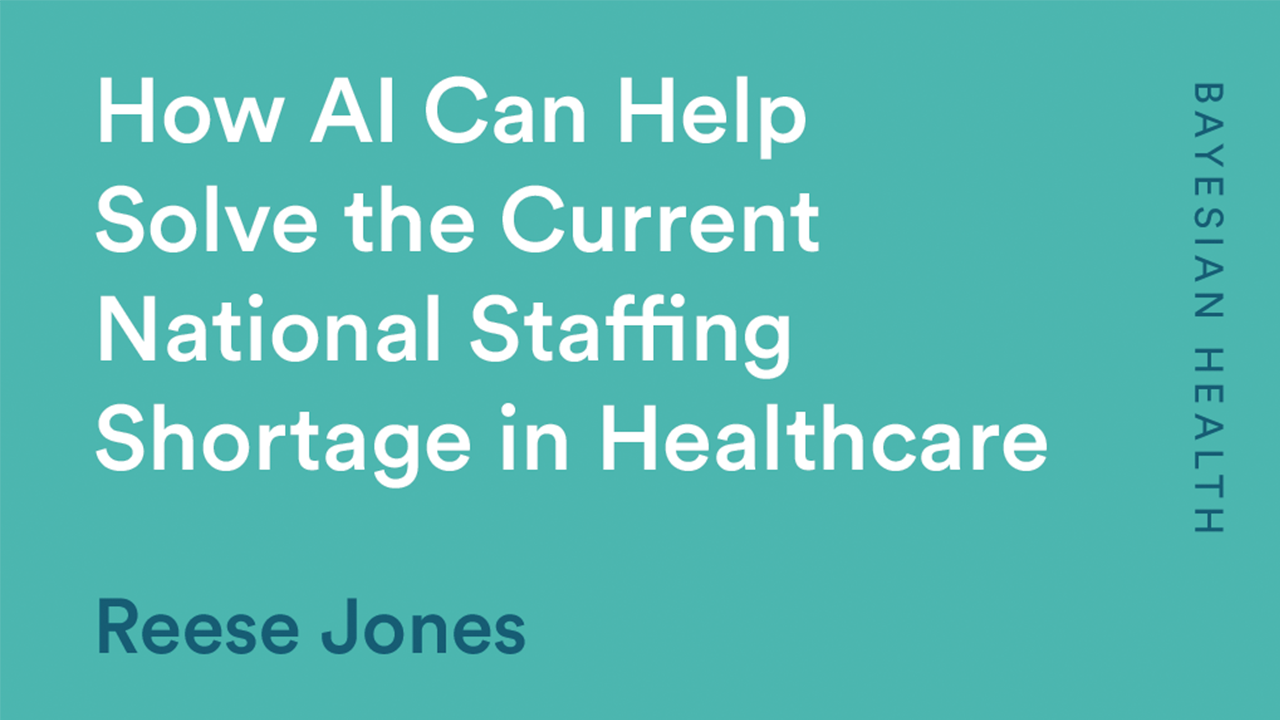How AI Can Help Solve the Current National Staffing Shortage in Healthcare

Healthcare providers around the country are struggling due to a severe shortage of workers. The massive healthcare demand caused by the pandemic has inflicted burnout and stress to healthcare workers in all sectors, driving most to their wits’ end. According to the Bureau of Labor Statistics, the healthcare sector has already lost at least 500,000 workers since February 2020. This spells disaster for healthcare providers today, especially since many more healthcare workers are considering leaving the workforce due to other reasons such as reduced benefits, cut salaries, and grueling working conditions.
A recent report projects that around 6.5 million employees in the healthcare sector will leave their jobs by 2026. To address the shortage of workers, healthcare providers should leverage various tools and technologies. One such technological innovation that can help prepare healthcare providers is artificial intelligence (AI). In this post, let’s explore how AI can assist in reducing the impact of the current staffing shortage in healthcare.
Assist staff in triaging patients
Triaging has always been an essential process in healthcare institutions, but its role has been further highlighted by COVID-19. Triage staff need to stay alert and successfully differentiate COVID-19 from similar respiratory illnesses such as the flu. However, healthcare workers who are tasked with triaging patients may find it difficult to effectively and efficiently do their jobs, especially if cases soar and more people visit the hospital.
Healthcare providers can lighten the load on triage staff by using AI. Patients can answer a series of questions that will be evaluated against an algorithm. An AI-powered program can then help a healthcare worker accurately and quickly respond to the needs of a patient — whether it’s further testing or emergency health services. In order to effectively use AI for this purpose, healthcare providers should have a solid IT infrastructure that relies on printed circuit boards with reliable power integrity structure. This allows triage staff to utilize this AI feature continuously and accurately assess patients that need immediate healthcare attention.
Streamline healthcare documentation
Electronic health records (EHRs) are vital healthcare documentation that inform the doctor about the patient’s current medical status and contain notes on how to move forward with a patient’s treatment plan. Aside from that, EHRs also act as a report card for the government, as it includes billing records, insurance records, and other crucial documentation that may be legally required. Overseeing EHRs and making sure that the information in them remains updated can be a cumbersome task for healthcare workers. In addition, some healthcare executives say that while EHRs are a necessary tool today, they did nothing to improve patient encounters and instead added more time to a clinician’s workday.
Through AI, EHR documentation for clinicians and other healthcare workers can be made more efficient and accurate. AI technology can listen to clinician-patient conversations, and then interpret and transform it into salient content for orders, referrals, and notes. The AI can also input data directly to the EHR, which then reduces the burdensome administrative tasks to the already limited healthcare staff.
Improve patient outcome
The shortage in healthcare workers worsen the patient outcomes in an already delicate time. As the global health crisis continues to send more people to hospital, it is important that healthcare leaders employ tools that boost patient outcomes and reduce readmissions. AI can improve patient outcomes and reduce the healthcare burden by automating routine tasks, allowing healthcare workers to focus on patient care. In addition, AI-assisted solutions such as predictive analytics can help boost healthcare by determining which individuals are most at risk from a particular disease, identify patients who are likely to skip out on scheduled appointments, and even identify early warning signs of diseases before they become severe.
Expand healthcare access to underserved regions
Despite the advancement of healthcare technologies, there are still a lot of medically underserved areas in the country. The current shortage of healthcare workers in the country will also surely exacerbate this problem. Thankfully, AI can reduce the impact of the current staffing shortage by fulfilling some diagnostic duties usually assigned to specialists and other healthcare workers. For example, healthcare providers in regions that have a scarcity of ultrasound technicians and radiologists can use AI imaging tools to assess chest x-rays for signs of illnesses such as tuberculosis and pneumonia, with a level of accuracy akin to human specialists. Through this, AI can enhance the availability and accessibility of crucial healthcare processes to areas that don’t have sufficient healthcare workers.
Indeed, AI can be effectively leveraged by healthcare providers to reduce the strain on the healthcare system caused by the current staffing shortage. In the long run, AI can decrease the rate of burnout and stress that healthcare workers experience, as well as drive more equitable and safer health systems, both of which can improve the quality of healthcare provided to today’s patients.
written for bayesianhealth.com
by Jamie Rose


